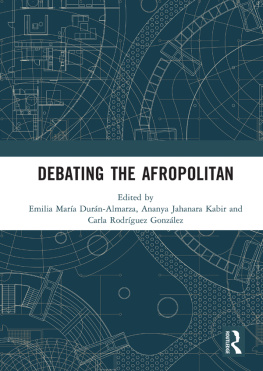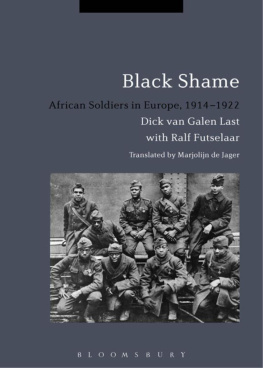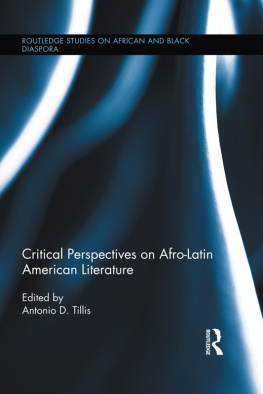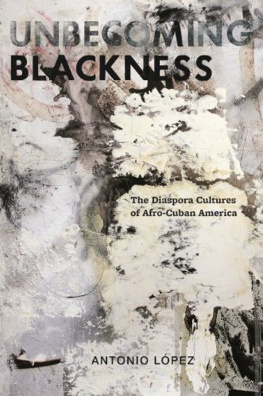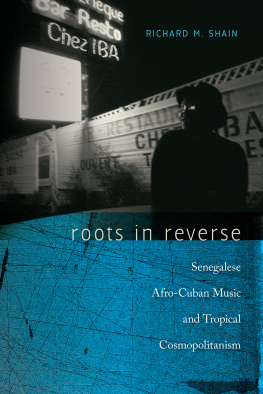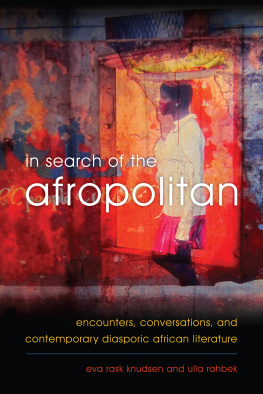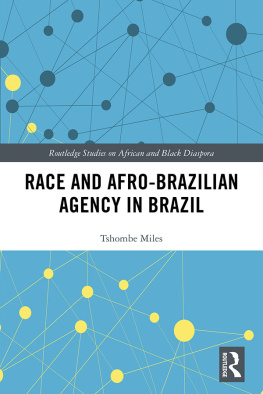Debating the Afropolitan
This volume evaluates the vitality of the term Afropolitan within the fields of African and Afro- diasporic studies. A hotly debated and malleable term, its wide circulation has allowed for Afropolitanism to become a contested space for critical inquiry. The contributions to this book are representative of the lively discussions that Afropolitan aesthetics, identity politics and Afro(cosmo)politanisms have sparked in recent years. The book aims to continue the debates around these concepts foregrounded by earlier works in the fields of postcolonial literature, African cultural studies, and studies of diaspora and transnationalism. This book was originally published as a special issue of the European Journal of English Studies.
Emilia Mara Durn-Almarza is Associate Professor of English at the University of Oviedo, Spain. She specializes in postcolonial literatures and gender studies, with an interest in the performative and literary productions of contemporary African Diasporas.
Ananya Jahanara Kabir is Professor of English Literature at Kings College London, UK. She works on memory, embodiment, transnationalism, and post- trauma across the global South, and is especially interested in the relationship between texts, dance, and music within urban African and African diasporic contexts.
Carla Rodrguez Gonzlez is Associate Professor of English at the University of Oviedo, Spain. Her research fields include gender and postcolonial studies, as well as contemporary Scottish literature.
Debating the Afropolitan
Edited by
Emilia Mara Durn-Almarza,
Ananya Jahanara Kabir and
Carla Rodrguez Gonzlez
First published 2019
by Routledge
2 Park Square, Milton Park, Abingdon, Oxon, OX14 4RN
and by Routledge
52 Vanderbilt Avenue, New York, NY 10017
Routledge is an imprint of the Taylor & Francis Group, an informa business
2019 Taylor & Francis
All rights reserved. No part of this book may be reprinted or reproduced or utilised in any form or by any electronic, mechanical, or other means, now known or hereafter invented, including photocopying and recording, or in any information storage or retrieval system, without permission in writing from the publishers.
Trademark notice: Product or corporate names may be trademarks or registered trademarks, and are used only for identification and explanation without intent to infringe.
British Library Cataloguing in Publication Data
A catalogue record for this book is available from the British Library
ISBN13: 978-0-367-08578-0
Typeset in Myraid pro
by Newgen Publishing UK
Publishers Note
The publisher accepts responsibility for any inconsistencies that may have arisen during the conversion of this book from journal articles to book chapters, namely the possible inclusion of journal terminology.
Disclaimer
Every effort has been made to contact copyright holders for their permission to reprint material in this book. The publishers would be grateful to hear from any copyright holder who is not here acknowledged and will undertake to rectify any errors or omissions in future editions of this book.
Contents
Emilia Mara Durn- Almarza, Ananya Jahanara Kabir and Carla Rodrguez Gonzlez
Eva Rask Knudsen and Ulla Rahbek
Patricia Bastida-Rodrguez
Aretha Phiri
Isabel Carrera-Surez
Miasol Egubar Holgado
Anna-Leena Toivanen
The chapters in this book were originally published in the European Journal of English Studies, volume 21, issue 2 (August 2017). When citing this material, please use the original page numbering for each article, as follows:
Introduction
Debating the Afropolitan
Emilia Mara Durn-Almarza, Ananya Jahanara Kabir and Carla Rodrguez Gonzlez
European Journal of English Studies, volume 21, issue 2 (August 2017) pp. 107114
Chapter 1
An Afropolitan literary aesthetics? Afropolitan style and tropes in recent diasporic African fiction
Eva Rask Knudsen and Ulla Rahbek
European Journal of English Studies, volume 21, issue 2 (August 2017) pp. 115128
Chapter 2
Afropolitan in their own way? Writing and self-identification in Aminatta Forna and Chika Unigwe
Patricia Bastida-Rodrguez
European Journal of English Studies, volume 21, issue 2 (August 2017) pp. 129143
Chapter 3
Lost in translation: re-reading the contemporary Afrodiasporic condition in Taiye Selasis Ghana Must Go
Aretha Phiri
European Journal of English Studies, volume 21, issue 2 (August 2017) pp. 144158
Chapter 4
Negotiating singularity and alikeness: Esi Edugyan, Lawrence Hill and Canadian Afrodiasporic writing
Isabel Carrera-Surez
European Journal of English Studies, volume 21, issue 2 (August 2017) pp. 159173
Chapter 5
Transforming the body, transculturing the city: Nalo Hopkinsons fantastic Afropolitans
Miasol Egubar Holgado
European Journal of English Studies, volume 21, issue 2 (August 2017) pp. 174188
Chapter 6
Cosmopolitanisms new clothes? The limits of the concept of Afropolitanism
Anna-Leena Toivanen
European Journal of English Studies, volume 21, issue 2 (August 2017) pp. 189205
For any permission-related enquiries please visit:
www.tandfonline.com/page/help/permissions
Patricia Bastida-Rodrguez is Associate Professor of English at the University of the Balearic Islands, Spain. Her current research focuses on gender and ethnicity in contemporary diasporic fiction in English, particularly that produced in the twenty-first century.
Isabel Carrera-Surez is Professor in English at the University of Oviedo, Spain. Her research interests include transculturalism, diasporic writing, Canadian, Caribbean and Australian literature and gender studies.
Emilia Mara Durn-Almarza is Associate Professor of English at the University of Oviedo, Spain. She specializes in postcolonial literatures and gender studies, with a special interest in the performative and literary productions of contemporary African Diasporas.
Miasol Egubar Holgado teaches English at the University of Oviedo, Spain. Her research interests include Canadian literature, Caribbean-Canadian literature, postcolonial studies, gender studies, and diaspora studies.
Ananya Jahanara Kabir is Professor of English Literature at Kings College London, UK. She works on memory, embodiment, transnationalism, and post-trauma across the global South, and is especially interested in the relationship between texts, dance, and music within urban African and African diasporic contexts.
Aretha Phiri is a lecturer in the Department of Literary Studies in English at Rhodes University and a research fellow at the Stellenbosch Institute for Advanced Study (STIAS), South Africa. Her research broadly interrogates intersectionalities of race, ethnicity, culture, gender, and sexuality/ies in comparative, transatlantic and transnational, considerations of identity and subjectivity, with a focus on (African-) American and (contemporary) African diaspora literature.
Ulla Rahbek is Associate Professor in the Department of English, Germanic and Romance Studies at the University of Copenhagen, Denmark. Her research and teaching expertise include postcolonial and contemporary British multicultural literatures.

